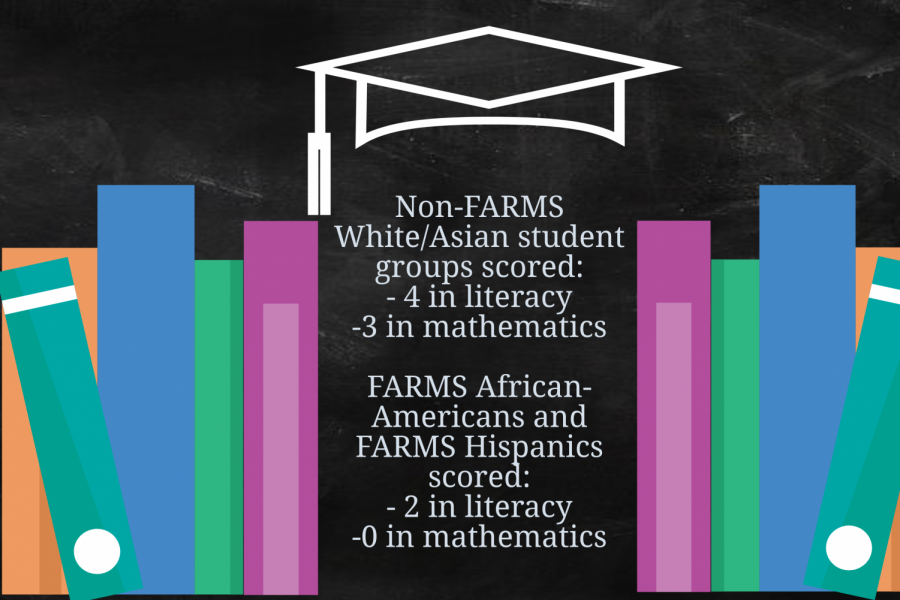New Study Reveals Lingering Achievement Gap in MCPS
May 31, 2019
Efforts to close MCPS’ achievement gap have been ineffective, according to a recent MCPS report in which the county released a new equity accountability model revealing lower performance rates in literacy and mathematics from minority, low-income students.
For decades, there has been a prevalent achievement gap in MCPS, primarily evident between White/Asian students and African-American/Hispanic students, including students in the Free and Reduced-Priced Meals (FARMS) program.
In the equity accountability model, data is categorized into five focus groups: Non-FARMS African-Americans, Non-FARMS Hispanics, FARMS White/Asian/All Other Student Groups, FARMS African-Americans and FARMS Hispanics.
“Our attempts in disaggregating this data is so that we can be intentional about student performances across the focus groups,” MCPS Public Information Officer Derek Turner told the Rampage. “We know the income gap, especially in African-American and Hispanic families, is impactful to students inside the classroom but also outside [when it comes to available resources].”
The data reveals that in School A, a sample report for student performances in both literacy and mathematics, Non-FARMS White/Asian students score much higher than both FARMS African-American and FARMS Hispanic students. Non-FARMS White/Asian student groups scored a four in literacy and a three in mathematics, while FARMS African-Americans and FARMS Hispanics scored a two in literacy and a zero in mathematics–barely meeting achievement level.
“This data is showing how MCPS is not fighting as hard as it should be to try and get equitable education in our county,” sophomore class president and Rockville For Change co-vice president Gabriella Diaz said. “MCPS is failing to represent minorities… because there shouldn’t be a great difference in numbers between minorities and those of a higher socioeconomic status.”
Besides education alone, there are other factors that play into causing an achievement gap, such as students having non-school related agendas.
“Academics aside, I think there come many social problems… Some students have to work very long hours and have jobs outside of school making it very difficult for them to come, and I think that goes for the whole county,” ESOL teacher Ann Staats said.
Although MCPS has been aware of the achievement gap for years, they had never collected data in the way the equity accountability model demonstrates, specifically with the categorization of different racial groups and those affected by poverty.
“For years, MCPS has been saying ‘yeah, we’re working on the achievement gap, we’re working on the achievement gap,’ but, previous data used to never be disaggregated,” Turner said. “We’ve never really taken it upon ourselves to digest this data and really separate out what each gap looks like for each group at every school. This [data] is a foundation to see where we are so we can now hold ourselves fully accountable to the outcomes of every student.”
Through implementations of new programs including training teachers to be culturally understanding and providing more resources to students, the county expects to see improvements in the data as students grow accustomed to these new outlets, Turner said.
Outside the county’s efforts to try and close the achievement gap, students are also trying to make a change in the current MCPS education system.
“Recently students have started to get more involved in attending county meetings,” Diaz said. “Because they realize that this is an issue that they need to be fighting for… because your socioeconomic status or your ethnicity shouldn’t determine the kind of education you receive.”





